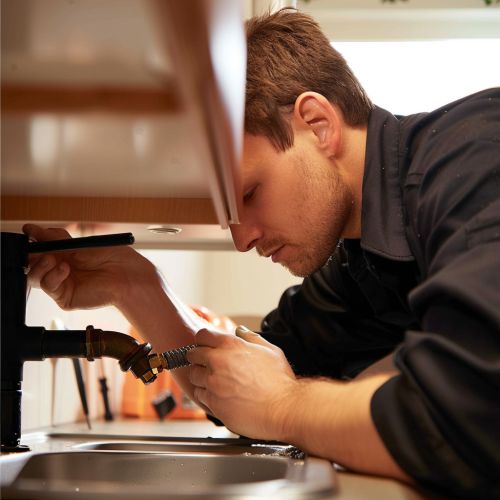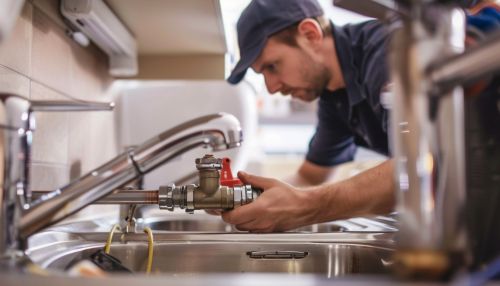Plumber
Overview
A plumber is a professional who specializes in the installation and repair of piping systems used for the distribution of water, drainage, and gas in residential, commercial, and industrial settings. Plumbers are skilled in reading blueprints, understanding building codes, and solving complex plumbing issues. They work with a variety of materials and tools, including copper, steel, plastic, and iron pipes, as well as wrenches, pipe cutters, and soldering irons.


History
The profession of plumbing dates back to ancient civilizations such as the Romans, who developed complex systems of aqueducts, sewers, and lead pipes to provide clean water and remove waste. The word "plumber" itself comes from the Latin word plumbum, meaning lead, as lead was the primary material used for pipes in ancient times.
Training and Certification
Becoming a plumber typically involves a combination of classroom instruction and hands-on training through an apprenticeship. In many countries, plumbers must also pass a licensing exam to demonstrate their knowledge and skills. The specifics of training and certification requirements can vary widely depending on the region and local regulations.
Roles and Responsibilities
Plumbers perform a wide range of tasks related to the installation, maintenance, and repair of plumbing systems. These can include:
- Reading and interpreting blueprints and technical drawings.
- Installing and repairing pipes and fixtures for water, gas, steam, air, or other liquids.
- Inspecting plumbing systems and identifying issues.
- Testing plumbing systems for leaks and other problems.
- Cutting, assembling, and installing pipes and tubes.
- Ensuring compliance with safety standards and building codes.
Tools and Equipment
Plumbers use a variety of tools in their work, ranging from simple hand tools to sophisticated diagnostic equipment. Some of the most commonly used tools include pipe cutters, wrenches, pliers, and snake augers. They may also use specialized equipment such as video inspection cameras to examine pipes and locate blockages or leaks.
Health and Safety
Plumbing work can be physically demanding and sometimes hazardous. Plumbers often need to work in tight spaces, lift heavy objects, and handle potentially dangerous materials. As such, they must follow strict safety protocols to prevent injuries and health risks. This can include wearing protective gear, using safe lifting techniques, and adhering to regulations regarding the handling and disposal of hazardous materials.
Professional Associations
There are numerous professional associations for plumbers around the world, which provide resources, training, and advocacy for their members. These include the Plumbing-Heating-Cooling Contractors Association in the United States, the Chartered Institute of Plumbing and Heating Engineering in the United Kingdom, and the Master Plumbers' Association of Queensland in Australia.
Future Trends
Advancements in technology are impacting the plumbing industry, with the rise of smart home systems, water-efficient appliances, and environmentally friendly plumbing solutions. Plumbers need to stay updated with these trends to meet the changing needs and expectations of their clients.
